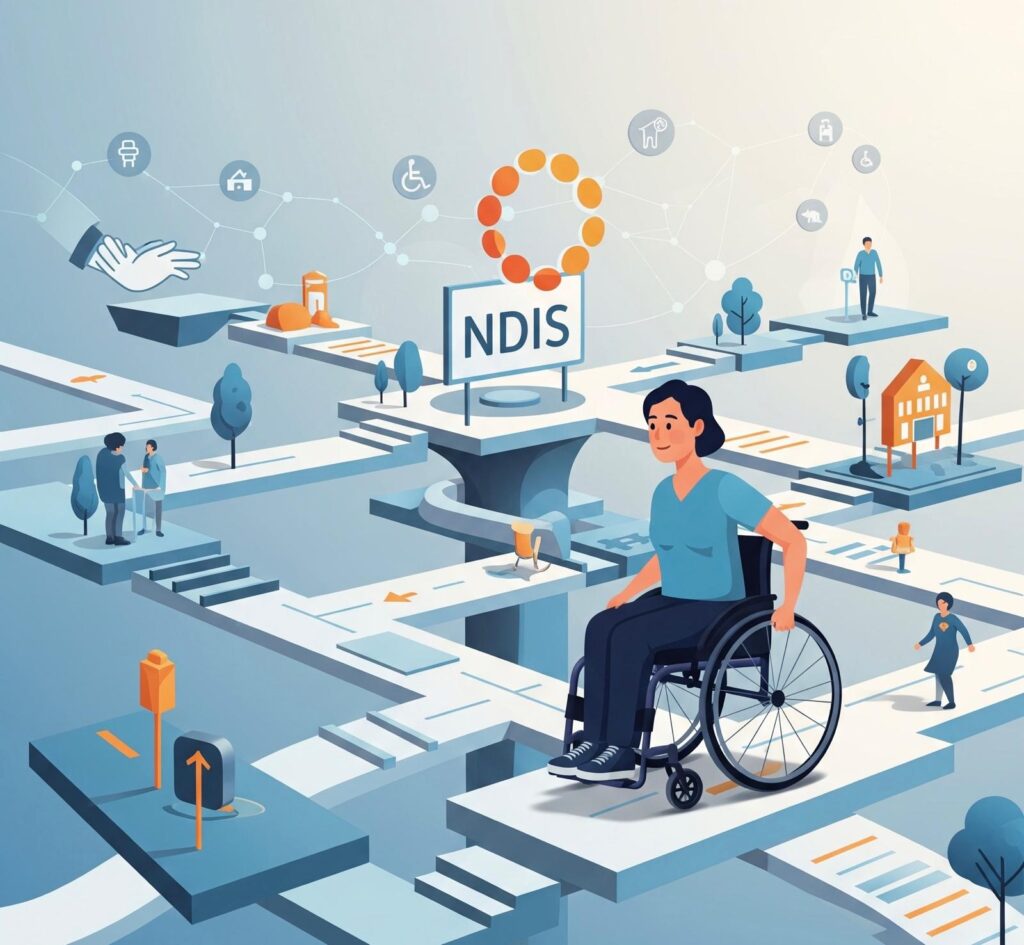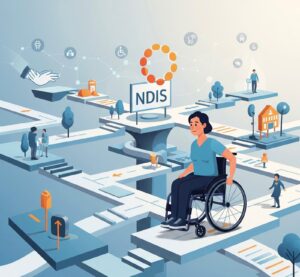The National Disability Insurance Scheme (NDIS) is a landmark Australian Government initiative designed to support people with disabilities. This comprehensive scheme provides funding for services and support to enhance the independence, social, and economic participation of individuals with disabilities. This article offers an in-depth understanding of the NDIS, its objectives, structure, and how it benefits participants, supported by scientific sources.
Overview of the NDIS
Objectives of the NDIS
The NDIS aims to provide all Australians under the age of 65 who have a permanent and significant disability with the necessary support to live an ordinary life. The core objectives include:
- Enhancing independence and social participation
- Increasing opportunities for employment
- Providing individualised support
- Promoting choice and control over supports and services (NDIS, 2021)
Eligibility Criteria
To be eligible for the NDIS, individuals must meet the following criteria:
- Age: Must be under 65 years old when applying.
- Residency: Must be an Australian citizen, permanent resident, or hold a Protected Special Category Visa.
- Disability Requirement: Must have a permanent and significant disability that substantially impacts daily living activities (NDIS, 2021).
Structure of the NDIS
Individualised Plans
Each participant in the NDIS receives an individualised plan that outlines their goals, the supports they need, and the funding allocated for these supports. The plan is tailored to meet the unique needs and preferences of the participant (NDIS, 2021).
Types of Supports Funded
The NDIS funds a wide range of supports that fall into three main categories:
- Core Supports: Assistance with daily living activities, consumables, and social and community participation.
- Capacity Building Supports: Aimed at building skills and independence in areas such as employment, education, relationships, and health.
- Capital Supports: Investments in assistive technologies and home modifications to enhance accessibility (NDIS, 2021).
Plan Management Options
Participants can choose from three plan management options:
- Self-Managed: Participants manage their own funds, directly paying providers and keeping track of expenses.
- Plan-Managed: A registered plan management provider handles the financial aspects of the plan, including payments and record-keeping.
- NDIA-Managed: The National Disability Insurance Agency (NDIA) manages the funds, paying providers directly and handling all administrative tasks (NDIS, 2021).
Benefits of the NDIS
Enhanced Independence
The NDIS supports participants in achieving greater independence by funding aids, equipment, and personal care services that assist with daily living activities. This empowerment allows individuals to live more independently and with dignity (Mavromaras et al., 2018).
Increased Social and Economic Participation
By providing funding for education, employment support, and community participation, the NDIS encourages participants to engage more fully in social and economic activities. This can lead to improved self-esteem, social inclusion, and financial independence (Kavanagh et al., 2021).
Personalised Support
The individualised nature of NDIS plans ensures that supports are tailored to the specific needs and goals of each participant. This personalised approach enhances the relevance and effectiveness of the supports provided, leading to better outcomes for individuals (NDIS, 2021).
Flexibility and Choice
The NDIS promotes choice and control by allowing participants to select their providers and manage their supports in a way that best suits their needs. This flexibility helps ensure that participants receive the most appropriate and effective support (Mavromaras et al., 2018).
Challenges and Future Directions
Implementation Challenges
The implementation of the NDIS has faced several challenges, including:
- Complexity and Bureaucracy: Navigating the NDIS system can be complex and time-consuming for participants and their families.
- Workforce Shortages: There is a shortage of skilled disability support workers, which can impact the quality and availability of services.
- Inequities in Access: Some participants, particularly those in rural and remote areas, face barriers to accessing services (Productivity Commission, 2017).
Continuous Improvement
To address these challenges, continuous improvement efforts are needed, including:
- Simplifying processes and reducing administrative burdens for participants
- Investing in workforce development to ensure a sufficient supply of skilled support workers
- Enhancing outreach and support for participants in underserved areas (NDIS, 2021).
Conclusion
The NDIS represents a significant advancement in supporting Australians with disabilities, offering individualised funding and support to enhance independence and participation. While there are challenges to be addressed, the NDIS’s focus on choice, control, and personalised support provides a robust framework for improving the lives of individuals with disabilities. Ongoing efforts to refine and improve the scheme will help ensure it meets the diverse needs of all participants effectively.
References
- Kavanagh, A. M., Mays, N., & Meltzer, A. (2021). The Australian National Disability Insurance Scheme (NDIS): An overview. Australian Health Review, 45(3), 297-308.
- Mavromaras, K., Moskos, M., Mahuteau, S., & Isherwood, L. (2018). Evaluation of the NDIS: Final report. National Institute of Labour Studies, Flinders University. Retrieved from Flinders University website.
- National Disability Insurance Scheme (NDIS). (2021). Understanding the NDIS. Retrieved from NDIS website
- Productivity Commission. (2017). National Disability Insurance Scheme (NDIS) Costs. Study Report. Canberra: Productivity Commission. Retrieved from Productivity Commission website
How to get in touch
If you or your patient/NDIS clients need immediate mental healthcare assistance, feel free to get in contact with us on 1800 NEAR ME – admin@therapynearme.com.au.







